
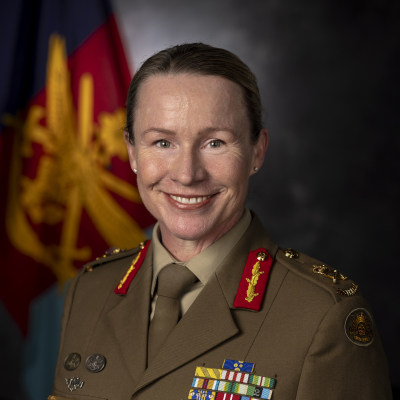
Lieutenant General Susan Coyle enlisted as a soldier in the Army Reserves in 1987 before completing a Science degree at the Australian Defence Force Academy and graduating from the Royal Military College in 1992 into the Royal Australian Corps of Signals. She was appointed to Chief of Joint Capabilities Group in July 2024, becoming the first female to lead a warfighting and operational domain.
Lieutenant General Coyle has worked at the tactical, operational and strategic level in a variety of command and staff appointments. She has commanded at every rank, including Commander Forces Command, Commander Joint Task Force 633 (CJTF633), Commander 6th Brigade, Commander Task Group Afghanistan and Commanding Officer 17th Signal Regiment. She has seen operational service as the J6 Communications on Operation CITADEL, and Officer Commanding 104th Signal Squadron on Operation ANODE, Deputy Commander – Afghanistan, transitioning into Deputy Commander JTF 636 on Operation SLIPPER / Task Group Afghanistan on Operation HIGHROAD, and CJTF633 on Operation ACCORDION. Key staff appointments include Head Information Warfare, Director Workforce and Behaviours - First Principles Review, Director Soldier Career Management – Army, Director of Studies Land at the Australian Command and Staff College, Military Assistant to the Deputy Chief of Army and Aide-de-camp to Commander Australian Theatre.
Lieutenant General Coyle holds post-graduate qualifications in a Master of Strategic Studies from the United States Army War College, a Master in Organisational Development and Strategic Human Resource Management from the University of New England, and a Master of Management in Defence Studies from the University of Canberra. She is an alumnus of the Harvard Advanced Management Program.
Lieutenant General Coyle was appointed a Member of the Order of Australia for Commander Joint Task Force 633, a Distinguished Service Medal as Deputy Commander JTF 636 / Commander Task Group Afghanistan on Operation SLIPPER / HIGHROAD, and a Conspicuous Service Cross as Commanding Officer 17th Signal Regiment. She has also received a Chief of Joint Operations Command Commendation as Officer Commanding 104th Signal Squadron on Operation ANODE, and a Commander Australian Theatre Commendation as Staff Officer to the Commander Australian Theatre Joint Intelligence Centre. Whilst posted to the United States, she received the U.S. Army Commendation Medal as the 11th Signal Brigade Satellite Engineer.
Susan is married to Mark, an Engineer in the Army, and together they have three wonderful and mostly charming millennials – Jessica, Susie, and Jack. Her hobbies include attending musical theatre, reading anything and travelling anywhere.
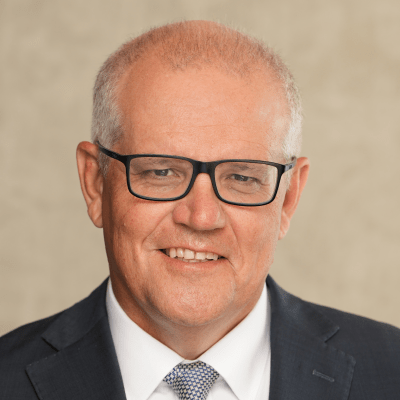
Hon. Scott Morrison served as the 30th Prime Minister of Australia from 2018 to 2022,
As Prime Minister, Mr Morrison successfully led Australia through the global COVID 19 pandemic.
Under Mr Morrison’s leadership Australia had the third lowest COVID fatality rate in the OECD
while Australia’s economy outperformed all G7 and almost all OECD economies, making it one of
the most effective public health and economic responses in the world.
As Prime Minister, Mr Morrison was the architect and founder of the AUKUS trilateral defence
agreement between Australia, the United Kingdom and the United States. He was a founding member
of the Quad leaders dialogue with Indian PM Modi, Japanese PMs Suga and Kishida and United
States President Biden. As PM, Mr Morrison also completed numerous other diplomatic, trade and
defence agreements, including the first post Brexit free trade agreement with the UK, the first ever
bilateral defence forces reciprocal access agreement with Japan and the first ever comprehensive
strategic partnership agreement with ASEAN.
Domestically, Mr Morrison steered the Australian economy to its lowest unemployment rate in almost
50 years, balancing the federal budget before the pandemic hit and returning it to a structural surplus.
He ensured Australia remained one of only nine countries in the world to maintain a AAA credit
rating from all major international credit rating agencies.
Prior to becoming Prime Minister, Mr Morrison served as a Cabinet Minister for five years, including
three years as Federal Treasurer (2015-2018) as well as Minister for Immigration and Border
Protection, where he designed and implemented Australia’s highly successful border protection
policy, Operation Sovereign Borders. Mr Morrison served on both the National Security Committee
of Cabinet and the Cabinet Expenditure Review (Budget) Committee for eight years, and as the
Member for the electorate of Cook in the Australian House of Representatives from 2007 to 2024.
As Prime Minister, Mr Morrison was awarded the honour of Chief Commander of the United States
Legion of Merit by President Trump, The Jerusalem Prize by the World Zionist Council and the
inaugural Grotius Prize for International Relations from UK Policy Exchange.
Mr Morrison is now non executive Vice Chairman of US geo-political advisory firm, American
Global Strategies, non executive Chairman of Space Centre Australia and Principal of his own
Australian based consulting firm, Triginta Advisory. He also serves on several global strategic
advisory boards in the private sector as well as the International Democracy Union, the Center for a
New American Security and the Hudson Institute China Center.
Mr Morrison holds a Bachelor of Applied Science with Honours in Economic Geography from the
University of New South Wales, in Sydney, where he graduated in 1990. In 2024 Mr Morrison’s
Christian memoir, Plans for Your Good, was published by Harper Collins. Mr Morrison is married to
Jenny, they have two teenage daughters and live in Sydney, Australia.
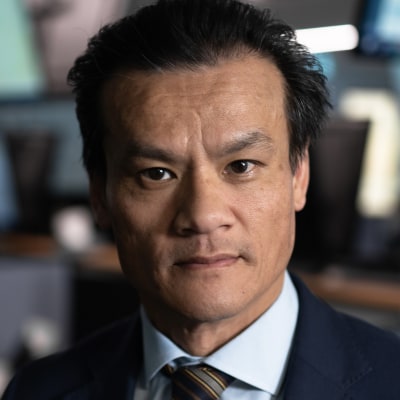
After moving to Australia from Laos with his parents and brothers when he was just six, Anoulack attended Robert Townson Primary and Robert Townson High School in Raby.
On the weekends and after school, Anoulack helped out at his family’s small grocery store where he learnt the value of hard work and the challenges of small business.
After graduation, Anoulack completed a Bachelor of Commerce at the University of Sydney and later undertook postgraduate studies in economics and public administration at the University of Sydney and the London School of Economics.
Before entering Parliament, Anoulack worked as an economist for 13 years and served as a councillor and later as mayor on Campbelltown City Council.
After his election as Member for Macquarie Fields in 2015, he served as Shadow Minister for Finance and Shadow Minister for Industry and Trade between 2021 and 2022.
Following the election of the Minns Labor Government in March 2023, Anoulack was appointed Minister for Better Regulation and Fair Trading, Minister for Industry and Trade, Minister for Innovation, Science and Technology, Minister for Building and Minister for Corrections.
Anoulack and his wife Anna live in South-West Sydney with their two children Audrey and Christopher.
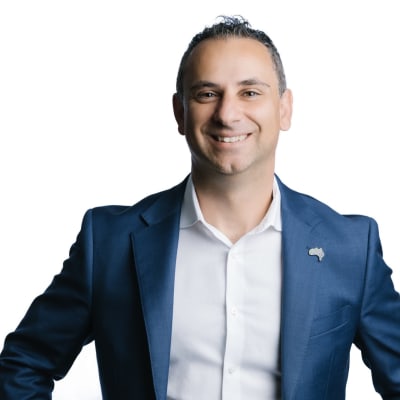
Enrico has led the Australian Space Agency since January 2021. Since his commencement, Enrico has proudly led a diverse team of space agents that have achieved a number of major milestones.
Under his leadership the Agency has reached an agreement with NASA for an Australian designed, built and operated rover to be included in a future mission to the Moon, secured the first launch permits and launch facility licenses under the Australian Space (Launches and Returns) Act, and seen the first commercial spaceflights from Australia.
Before joining the Agency, Enrico spent 14 years in various roles at Virgin Galactic, including establishing and leading a vertically integrated aerospace manufacturing and testing operation for Mach 3, crewed commercial spaceships. From there Enrico was part of the team that launched the New York Stock Exchange listed public company and was appointed Chief Operating Officer.
A Perth native, Enrico graduated from the University of Western Australia with a Bachelor of Engineering in Mechanical Engineering and Bachelor of Science in Physics and Applied Mathematics. He also studied at the International Space University in Strasbourg.

Eric Philips is an Australian polar explorer, adventurer, guide and private astronaut, renowned for his pioneering expeditions across Earth’s most extreme environments.
Eric has led numerous self-supported ski expeditions across major icecaps, including those in Greenland, Ellesmere Island, Iceland, Svalbard, Patagonia, and Antarctica. Notably, he became the first Australian, alongside companion Jon Muir, to ski to both the North and South Poles, locations he has since trekked to more than 20 times. In 1998–99, he completed a 1,425 km ski expedition from McMurdo Station to the South Pole via the untrodden Shackleton Glacier, one of four new rotes he has pioneered to the Earth’s most southerly point.
In 1999, Eric founded Icetrek Expeditions and Equipment, a company specialising in polar guiding and equipment design. He also co-founded the International Polar Guides Association (IPGA) and co-created the Polar Expeditions Classification Scheme (PECS).
In April 2025, at age 62, Eric participated in the Fram2 mission - the first human spaceflight to orbit over the Poles. Launched from Cape Canaveral aboard a SpaceX Crew Dragon capsule, the mission completed 55 orbits over 3.6 days at an altitude of approximately 430 km. He became the first Australian to fly to orbit under the Australian flag and the fourth Australian in space.

Dr. Kelly Fast is the Acting NASA Planetary Defense Officer for NASA’s Planetary Defense Coordination Office. In her role, she manages planetary defense activities across NASA and coordinates U.S. interagency and international efforts to study and plan a response to the asteroid impact hazard. Previously, she managed NASA’s Near-Earth Object Observations Program for a decade; led NASA’s Solar System Observations, Planetary Astronomy and Planetary Atmospheres research programs; served as the Program Scientist for NASA’s MAVEN mission to Mars; and worked as a planetary astronomer at NASA’s Goddard Space Flight Center. She earned her B.S. in Astrophysics from the University of California, Los Angeles, and her M.S. and Ph.D. in Astronomy from the University of Maryland. Main-belt asteroid 115434 (2003 TU2) was renamed “Kellyfast” in honor of Dr. Fast’s contributions to planetary science
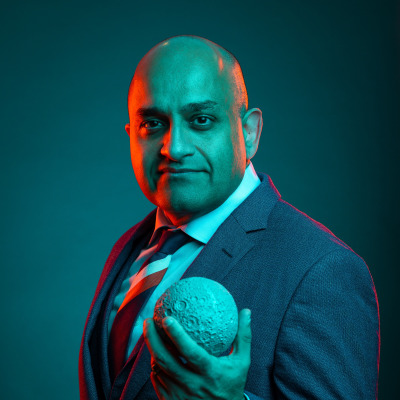
A.C. is an experienced leader in entrepreneurial aerospace ventures. His private and public sector experience span a multitude of technical areas including launch vehicles, hypersonics, human/robotic exploration, lunar landers, planetary defense, small satellites, and aviation autonomy.
From 2023 to 2025 he served as NASA’s chief technologist, serving as principal advisor to NASA’s administrator on technology policy and programs. He supported technology innovation at the agency and alignment of NASA’s agencywide technology investments with mission needs across its six mission directorates. A.C. also supported technology collaboration with other federal agencies and the private sector while coordinating with external stakeholders.
Before joining NASA, he served as vice president of product strategy at Reliable Robotics, a firm working to bring certified autonomous vehicles to commercial aviation. A.C. led the overall corporate strategy for the company, including working to mature product fit, leading/conducting market and competitive assessments, and engaging with global customers and partners. He also led program management for their Department of Defense autonomy projects.
Prior to Reliable Robotics, he worked on advanced development programs at Blue Origin. He helped define their lunar permanence strategy, created and advanced the Blue Moon lunar lander strategy, and engaged with customers and technical partners. He also moved multiple technology projects forward, including many with NASA.
He previously worked as a strategy and business development leader for the Virgin Galactic (now Virgin Orbit) LauncherOne small satellite launch vehicle program. While there, he advocated for using a 747-400 aircraft to air-launch a rocket carrying payloads to space and then captured a contract for several dozen launches.
Before Virgin Orbit, he held multiple roles at SpaceWorks Enterprises, including strategic thinker and technical analyst in the areas of space transportation and infrastructure design, aerospace economic/financial modeling, and general far-term technology impact assessment and prioritization. While at SpaceWorks, he was also heavily involved in incubating the two startups of Generation Orbit and Terminal Velocity Aerospace.
A.C. led the formation of the FastForward industry group focused on high-speed, point-to-point transportation. He was also a NASA Innovative Advanced Concepts (NIAC) fellow and was on the Lunar Exploration Analysis Group Commercial Advisory Board. He received a bachelor’s and a master’s degree in aerospace engineering from the Georgia Institute of Technology and a bachelor’s in economics from Emory University.
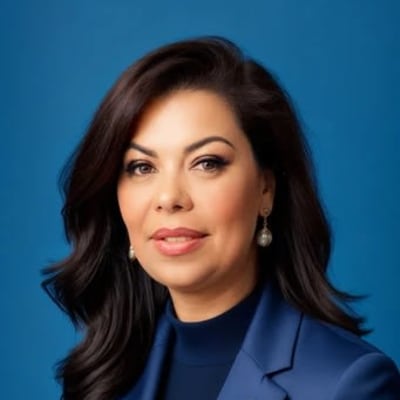
Dr. Ulpia-Elena Botezatu is a leading voice in global space governance, serving as Chair of the UN COPUOS Scientific and Technical Subcommittee and Co-Chair of the Action Team on Lunar Activities Consultation (ATLAC). In these roles, she plays a pivotal part in shaping international policies for the peaceful and sustainable use of outer space.
As a Space Policy Officer at the Romanian Space Agency, Dr. Botezatu represents Romania in key international organizations, including the European Space Agency, the European Commission, the EU Space Surveillance and Tracking Partnership, and NATO's Science and Technology Organization. Her work focuses on space security, space situational awareness, and the resilience of critical space infrastructure, ensuring that global space activities align with security and sustainability principles.
Holding a Doctorate in Engineering and a Master’s in Urban Management, she brings an interdisciplinary perspective to space governance, bridging technical expertise with policy and legal considerations. A prolific author in the field, she is currently working on a book exploring the intricate connections between outer space and urban environments. Additionally, she is pursuing a degree in international law with a focus on space law, further strengthening her ability to contribute to the development of practical legal frameworks that support secure and cooperative space activities.
Dr. Botezatu is deeply committed to fostering international partnerships and advancing policies that promote responsible space exploration, ensuring that space remains a domain for peaceful cooperation and innovation.
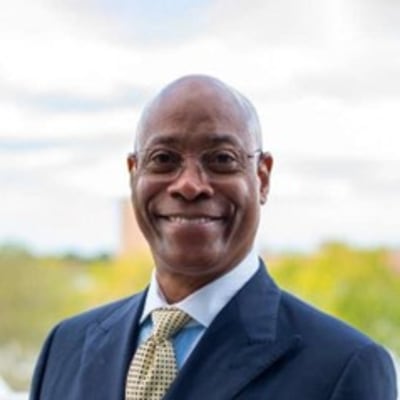
Roosevelt “Ted” Mercer, Jr., Major General, USAF (Ret.), is the CEO and Executive Director of the Virginia Spaceport Authority. Since taking office on August 1, 2021, Mr. Mercer has made it the mission of the Virginia Spaceport Authority to serve the Commonwealth’s economy by providing afe, reliable, and responsive space launch services, ensuring access to space at competitive prices, and maintaining secure facilities for testing of unmanned vehicles for integration into the National Airspace System (NAS).
The Virginia Spaceport Authority, a political subdivision of the Commonwealth of Virginia, owns and operates the Mid-Atlantic Regional Spaceport (MARS). MARS is co-located on NASA’s Wallops Flight Facility on the Eastern Shore of Virginia. Mr. Mercer is responsible for the expansion and promotion of the commercial and government space industry in the Commonwealth. He directly oversees successful launch to space, industrial and economic development, and scientific and technological research and development.
Under Mr. Mercer's leadership, the Virginia Spaceport Authority continues to reach milestones that signify rapid expansion, including successful launches, the development of new facilities, a new launch pad, and outreach activities with domestic and international space industry organizations.
Prior to joining the Virginia Spaceport Authority, Mr. Mercer was the director of the Office of NextGen Collaboration and Messaging at the Federal Aviation Administration (FAA). He provided high-level leadership by managing and building relationships with a broad representation of stakeholders in the aviation community, federal agencies, and international air navigation service providers.
Mr. Mercer oversaw communication and outreach activities, including performance reporting for the Next Generation Air Transportation System (NextGen). His organization supported the governance of the NextGen Executive Board, the NextGen Management Board, the NextGen Executive Weather Panel, and the NextGen Advisory Committee, managed interagency NextGen issues, and coordinated the Office of NextGen’s international program to support global harmonization.
Prior to joining the FAA in April 2016, Mr. Mercer served as the Vice President and Director for Government Commercial & International Initiatives, Geospatial Systems, a division of ITT Exelis. He was responsible for government and industry partnerships and international initiatives.
Mr. Mercer served in the United States Air Force (USAF) for more than 32 years (retired January 1, 2008), most recently as Director of Plans and Policy for U.S. Strategic Command at Offutt Air Force Base (AFB) Nebraska. He was responsible for the development and implementation of national security policy, military strategy, space and weapons employment concepts and policy, and joint doctrine as it applied to the command and execution of its missions. Mr. Mercer was also responsible for the development of the nation’s strategic war plan, strategic support plans for theatre combatant commanders, and contingency planning for the Global Strike mission.
Mr. Mercer has held Air Force command eight times from the squadron to the wing level. Some of his many USAF assignments include Commander, 45th Logistics Group, Patrick AFB, FL; Commander 30th Space Wing, Vandenberg AFB, CA; Commander, 81st Training Wing, Biloxi, MS; Commander 91st Operations Group, Minot, N.D.; Vice Director of Plans, U.S. Space Command, Peterson AFB, Colorado; Deputy Director of Operations, Headquarters Air Force Space Command, Peterson AFB, CO; and Commandant, Joint Forces Staff College, National Defense University, Norfolk, VA.
Entering the USAF in 1975, Mr. Mercer was a distinguished graduate of the University of Puget Sound’s ROTC program. His education credentials include a BA in urban planning from the University of Puget Sound; MS in counseling from the University of Oklahoma; post-graduate Executive Programs at Syracuse University, National Defense University, and Harvard University’s John F. Kennedy School of Government; and a concentrated Executive Financial Development Program at the Wharton School of Business.
Mr. Mercer is chair of the FAA’s Commercial Space Transportation Advisory Committee, chair of the Global Spaceport Alliance’s Policy and Outreach Advisory Committee, and member of the Commonwealth of Virginia Governor’s Aerospace Advisory Council; the Board of Trustees for the Rochester Institute of Technology, Rochester, NY; the National Association of Governing Boards; the Commercial Space Transportation Advisory Committee; and the National Space Council Users’ Advisory Group.
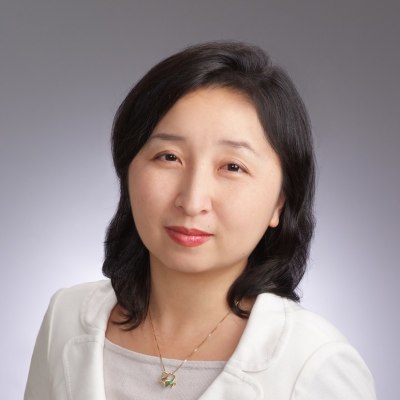
Dr. Sugita has more than 20 years of experience in the space sector. She has held numerous roles and led several projects in fostering innovation with the private sector and international cooperation. Among the projects initiated includes collaboration with a startup and local government, which later won the Prime Minister's award of the Japan Open Innovation Prize.
Currently, at JAXA, she is serving as the Japan lead for Earth Observing Dashboard in cooperation with NASA and ESA, to make information from satellites available to decision-makers and the public. She is also promoting public-private-academia partnerships through the Consortium for Satellite Earth Observation (CONSEO).
Dr. Sugita earned a Master in Public Administration at the Harvard Kennedy School, and received a doctorate from the National Graduate Institute of Policy Studies.

Yoshinori Odagiri started his career at All Nippon Airways Co., Ltd. (ANA) in 1987, focusing on flight operations management. After leading operational teams at Narita and Haneda Airports, he became Deputy Director of the Asia Strategy Office in 2011 and joined AirAsia Japan as a founding member, serving as CEO from 2012. In 2016, he joined ANA Strategic Research Institute, conducting studies on the revitalization of domestic airports for local governments and airport managers. He has served as President & CEO of SPACE COTAN Co., Ltd. since April 2021.

Sang-Ho Yun has supported over 200 major disaster response efforts globally over the past 15 years, using satellite Synthetic Aperture Radar (SAR) data. He is the Director of the Earth Observatory of Singapore – Remote Sensing Lab (EOS-RS) and an Associate Professor at the Asian School of the Environment (ASE) and the School of Electrical and Electronic Engineering (EEE) at Nanyang Technological University (NTU) in Singapore. Prior to joining NTU in 2021, he was a geophysicist and radar scientist at NASA’s Jet Propulsion Laboratory (JPL) for 14 years. Sang-Ho received the 2018 NASA Exceptional Public Achievement Medal and the 2014 NASA Early Career Achievement Medal for his innovative use of satellite SAR data in support of rapid post-disaster response. He holds a PhD in Geophysics and an MS in Electrical Engineering from Stanford University, and a BS in Earth and Environmental Sciences from Seoul National University.

James Palmer MEM, CompIEAust, EngExec
Founder, Space Centre Australia
As the founder of Space Centre Australia, James has over 20 years’ experience as a Chartered Engineering Executive Leader.
James began his career as a submariner in the Royal Australian Navy.
During this time, he gained extensive experience in engineering vehicles to withstand hostile conditions, both deep underwater and in space.
As CEO and Owner of Space Centre Australia, James specialises in project management, engineering, environmental science, land management, and of course, space systems. James’ educational achievements include a Master of Philosophy from the Queensland University of Technology, a Master of Business Administration from the University of South Australia, and a Master of Engineering Management from Southern Cross University.

Growing up in 1980s USA, Katie fell in love with Space as a small child and has been working in the domain since 2021 (if you can dream it, you CAN do it – Space needs everyone!) after COVID upturned her successful Fashion Photography business and deposited her in the Australian Public Service. Katie’s career has also included time as an Executive Support Guru, Recruiter and Retail whiz in the early days. Currently working in the Australian Space Agency’s International Partnerships team, Katie has also worked in Civil Space Policy and National Missions.
A passionate advocate for Women, Diversity and Inclusion in STE(A)M, and a personal supporter of events and organisations which encourage all to consider a career in STE(A)M, Katie also has a particular interest in First Nations connections to Sky and Country and appreciates the sharing of learning and experiences.
Katie cares deeply about being a champion for Equity, Diversity and Inclusion, not only in her workplace but also through external activities, and takes great pride in leading by example, consideration and intent.
Easily recognised by her warm smile, colourful outfits and Space themed accessories – Katie’s unique conversation starters have helped build genuine connections with her ever-growing network of peers who support the belief that we should seek to lift others as we ourselves rise.
Katie is an alumni of Melbourne Business School’s “Women’s Leadership Program”, is a Masters level member of the Australian Human Resources Institute, member of the Women in Aviation/Aerospace Australia organisation and an inaugural committee member of the Australian Space Diversity Alliance. She is currently completing her PSMP through QUT. She participates as a mentor in programs which focus on supporting young women in the Space arena.
In her downtime, Katie can be found keeping her hand in Photography (both Film and Digital), working on Vintage Sportscars and getting the living room “just right” (for the thousandth time, much to her cats’ displeasure).

Anntonette Dailey is a chartered engineer and brings more than 15 years senior executive capability, working across multiple Government agencies, not for profit and consultancies.
Anntonette was recently the Executive Director at the Australian Space Agency, having commenced as part of the inaugural leadership team in 2018 and was responsible for managing its operating environment, managing stakeholders and was instrumental in the establishment of the Australian Space Discovery Centre, publishing the first three whole of Government State of Space Reports, the financial controller and management of the public affairs, outreach and parliamentary activity.
Anny has always had a soft spot for the space sector, attending space camps at school, presenting to Parliament on the need for better space coordination. She is also a major supporter for developing the current and future STEM workforce. Her leadership and passion were recognised by AFR as one of Australia’s 100 most Influential Women and as young graduate of the year by the University of Technology, Sydney.
As a mother to Skye (6) and Flynn (1), Anny enjoys caravanning, renovating, rugby union and car racing.

Dr. Malcolm Davis joined ASPI as a Senior Analyst in Defence Strategy and Capability in January 2016.
Prior to this, he was a Post-Doctoral Research Fellow in China-Western Relations with the Faculty of Society and Design at Bond University from March 2012 to January 2016, and he currently retains an Honorary Assistant Professor position in the Faculty. He has worked with the Department of Defence, both in Navy Headquarters in the Strategy and Force Structure area, and with Strategic Policy Division in the Strategic Policy Guidance and Strategic External Relations and Education sections from November 2007 to March 2012. Prior to this appointment he was a Lecturer in Defence Studies with Kings College London at the Joint Services Command and Staff College, in Shrivenham, UK, from June 2000 to October 2007. He holds a PhD in Strategic Studies from the University of Hull as well as two Masters degrees in Strategic Studies, including from the Australian National University’s Strategic and Defence Studies Centre. His main research focus is on defence strategy and capability development, military technology, and the future of warfare.

Dr Rebecca Allen is the Co-Director of the Space Technology and Industry Institute at Swinburne University of Technology. She completed her PhD in Astrophysics at Swinburne where she used information from powerful telescopes like the Hubble Space Telescope to study the evolution and growth of galaxies going back to when the Universe was barely a billion years old. Now, Dr Allen applies her scientific expertise to help support Australia's growing space industry. To this end, she supports the translation of cutting-edge research in areas such as microgravity experimentation and Earth observation to build climate change resilient communities and support innovations for Earth. When she’s not studying space or sending things there, she’s inspiring and empowering future space leaders by communicating the wonders of the Universe and creating immersive, hands-on learning experiences.

Dr Catherine Grace is a thought leader in the areas of: Defence, Space, Medicine and Disruptive Technologies. She has held international roles in research, industry engagement, innovation strategy, policy development, partnerships & medical consultancy.
As physician and clinical researcher, Catherine has applied her translational skills to Disruptive Technologies and their economic impact.
She is recognised as a dynamic, resilient leader, with a broad range of experience in healthcare, defence, space, research & education, and strategic development.
Focused on providing knowledgeable advice and implementing strategies to support the achievement of organisational objectives, Catherine has been acknowledged for formulating and improving processes, directing and coordinating activities to develop long-range goals, communicating with influence and creating a harmonious, successful environment.
Dr Grace has shown commitment to the scientific community with multiple publications, national presentations, community engagement & education.
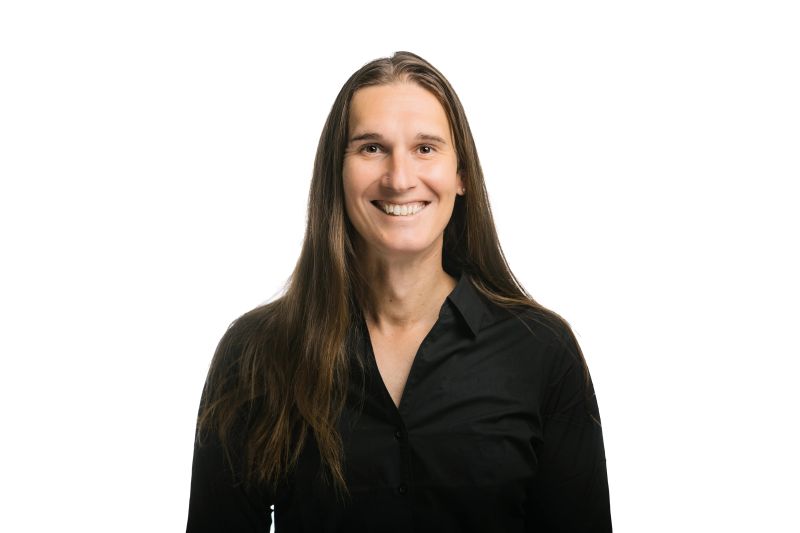
Dr Joni Sytsma is an aerospace engineer hailing from the USA who, as a recent citizen of Australia, is committed to building innovative technologies within our country. Dr Sytsma has over 16 years’ experience in the research, development and commercialisation of extremely complex aerospace systems where combined interactions of hardware, software and physics are the defining value-add.
As the Chief Technology Officer (iLAuNCH), Dr Sytsma leads the program’s research portfolio in space, satellites, rockets, hypersonics and advanced manufacturing and materials.
Joni was most recently Chief Technology Officer at Department 13 in the counter unmanned aerial systems field. Joni began her career with a decade of developing cutting edge aerospace systems at the United States Air Force Research Laboratory (AFRL). In her time at AFRL, Dr Sytsma led research and development teams to design and optimise aerospace technologies and develop academic concepts into fully tested systems.
Dr Sytsma moved to Australia to join the Hypersonic International Flight Research Experiment (HIFiRE) program with Defence Science and Technology (DST) group. She then joined Gilmour Space Technologies as Head of GNC to work on software stack development, performance simulations and design optimisations.
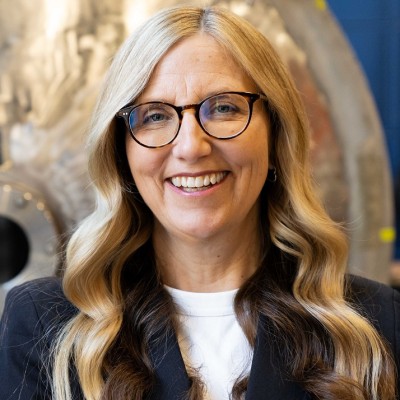
Professor Melissa de Zwart, Professor Space Law and Governance, University of Adelaide
Melissa is the Deputy Director and a Chief Investigator of the ARC Centre of Excellence in Plants for Space and Professor, Space Law and Governance, Andy Thomas Centre for Space Resources, at the University of Adelaide.
Melissa is a prominent legal researcher, working in the areas of commercial and military uses of outer space, encompassing both domestic and international space law. She has worked closely with the Australian space industry, including previously serving as Deputy Director and Board Member of the Space Industry Association of Australia, as well as on the successful bid team for the 2025 International Astronautical Congress to be held in Sydney. She has published widely on all legal and regulatory aspects of the space environment and contributed extensively to reviews and reforms of the regulatory framework. Melissa is a Fellow of the Australian Academy of Law and a Member of the International Institute of Space Law.
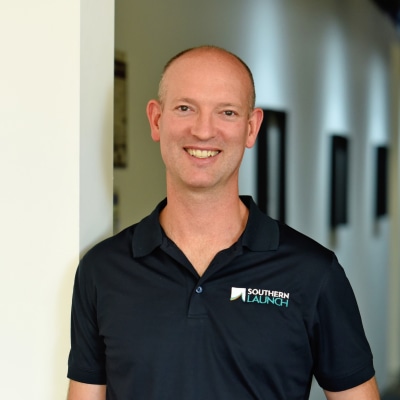
Lloyd Damp is CEO of Southern Launch and is at the forefront of the space industry in Australia. He founded Southern Launch in 2017 and the company conducted the first commercial space launch from Australian soil in 2020 and Australia’s first commercial space return in 2025.
Today, Southern Launch employs 30 people and operates two licensed space launch and return facilities in Koonibba and Whalers Way on the Eyre Peninsula of South Australia. These multi-user space launch facilities have been used by domestic and international customers with the Koonibba Test Range hosting the launch of the first high-powered rocket under Australian legislation.
Lloyd leads a team dedicated to developing world-class space launch and return facilities in South Australia and providing bespoke solutions for customers. Lloyd’s vision is to build a connected space industry centred around domestic launch and return capabilities to establish Australia as the next global space hub.
Prior to starting Southern Launch, Lloyd spent over 12 years working for the Australian Government specialising in complex program design and delivery. While there Lloyd also played a small part in helping Australia undertake regular rocket launches into space from Woomera.
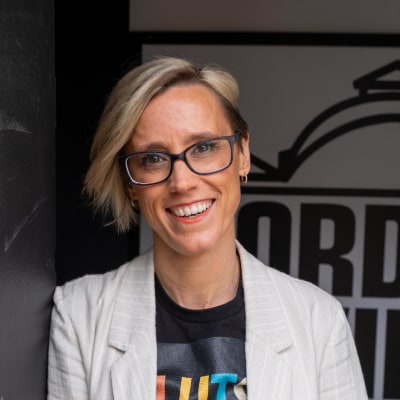
Dr Sarah Cannard, B.Eng., B.Sc., PhD, Fellow Engineers Australia, CPEng, GAICD
Dr Sarah Cannard is a space systems engineer, project manager and scientist with almost two decades of experience working for Nova Systems in the Australian Defence and Space sector. She is currently seconded to the SmartSat CRC as Industry Director and Project Manager for the Kanyini Earth Observation mission.
Previous projects include being the Lead Systems Engineer for the AROSE Australian Trailblazer Lunar Rover, part team to support to the JAXA Hayabusa 1 Spacecraft re-entry, was Flight Safety Officer for hypersonic sub-orbital rocket launches, has conducted weapons testing, autonomous vehicle tests and trials, and was a member of the Technical Advisory Group for the ASA Robotics and Automation Roadmap.
As former Female Space Leader of the Year and nominee for South Australian of the Year Awards, Sarah has demonstrated her deep passion for space and growing a truly sovereign Australian industry and promoting space-STEM careers across all generations.
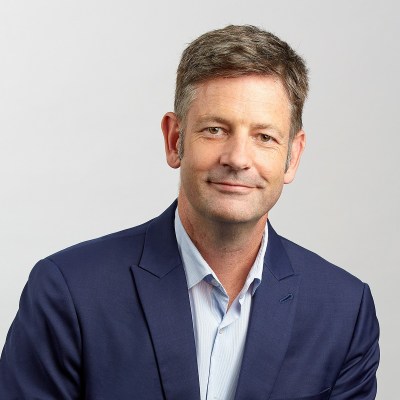
Dan is the CEO of the Space Industry Association of Australia (SIAA and brings extensive global and Australian executive, board and government experience across communications, technology, infrastructure, digital transformation and AI. Dan’s executive leadership experience spans government and media, legal, strategy, wholesale and retail P&L leadership and growth, innovation and M&A. Dan has served as Vodafone Group’s Public Policy Director for Africa, Middle East and Asia Pacific based in London; Head of Regulatory of Vodafone India based in Mumbai;
Chief Strategy Officer and Corporate Affairs Director of Vodafone Australia; Senior Adviser to the Communications Minister; and Senior Associate at leading AsiaPacific technology law firm Gilbert + Tobin Lawyers. Dan has lived, worked or studied in 13 countries and brings extensive experience in international policy and business including as a Director of the UK India Business Council and GSMA’s Chief Regulatory Officers Group. Dan is a graduate of the Australian Institute of Company Directors (GAICD, and has Chaired the Vodafone and TPG Telecom Foundations and the Australian Mobile Telecommunications Association (AMTA. Dan is currently a Non-Executive Director of Infoxchange.org which delivers leading-edge IT, cybersecurity and AI hardware, services and training to over 38,000 not-for-profits
throughout Australia and the Asia-Pacific.


Dr. Sandy Tirtey is Rocket Lab’s Senior Director of Global Launch Services and Rocket Lab Australia.
Prior to Joining Rocket Lab, Dr. Tirtey did his PhD thesis in Hypersonics at the von Karman Institute (Belgium) and a Post-Doc in the group for Hypersonics at The University of Queensland (UQ) where he led the technical development of the SCRAMSPACE scramjet flight experiment from 2009 to 2013.
Dr. Tirtey joined Rocket Lab in 2013 as Vehicle Team Lead, where he supervised the development and construction of the Electron launch vehicle. In 2015, Dr. Tirtey took on the role of Vice President of Vehicle Systems, before becoming Rocket Lab’s Launch Conductor in 2016. In this role, Dr. Tirtey led mission operators through the successful launches of ‘It’s A Test’ and ‘Still Testing’ in 2017 and 2018, respectively.
Today, Dr. Tirtey is the Senior Director of Global Launch Services and is based in Brisbane, Australia. In this role he supports small satellite operators globally to access orbit through frequent and reliable launch opportunities on the Electron launch vehicle. In February 2023, Dr Sandy Tirtey became Director of the newly created Rocket Lab Australia subsidiary.

Jacqui Tyack is a seasoned marketing executive with over 25 years of experience across federal government agencies and the private sector, spanning startups to multinational corporations. In 2022, she founded The Write Space, a communications consultancy that provides strategic marketing and brand guidance to the space industry. In 2024, she co-founded the Australian Space Diversity Alliance, aimed at increasing the participation of diverse and underrepresented groups in the space sector.
Currently, Jacqui collaborates with space and defence organisations on media and stakeholder engagement initiatives. Her extensive experience includes pivotal roles at Hewlett Packard and the Department of the Prime Minister and Cabinet, culminating in her contributions to the establishment of the Australian Space Agency in 2018. There, she developed a new brand and led media relations with government officials and global space agencies. A highlight of her tenure was working on a groundbreaking mission with the Japanese Aerospace Exploration Agency, which successfully returned asteroid samples to Woomera in 2020.
As a first-generation Australian, Jacqui is deeply passionate about diversity, equity and inclusion, advocating for a workforce that mirrors the rich multicultural tapestry of the nation and the benefits it brings to employers.

Gary Hale is the Director for the National Resilience & Security Program Office, or NRAS for short, and Chief Security Officer (CSO), appointed at Curtin University. This role is charged with building a resilient University that drives sustainable world-class science and innovation partnerships, including the development of nationally significant sovereign capability for Australia. This includes management of Foreign Risk, the Defence Industry Security Program (DISP), as well as growing the Defence and Space research portfolio in partnership with our government and industry stakeholders.
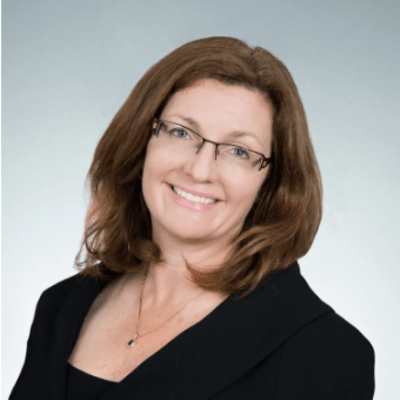
Deb has had a dual career in General Business Management, in small and medium enterprises, and as a Human Resource Leader in
Global Multinationals. She is equally comfortable with strategy and operations and brings both a systems design and human experience
approach to enabling top-line and bottom-line performance.
Deb brings specialisations in Leadership & Culture Transformation; Diversity, Equity & Inclusion; HR Business Partnering & Offshoring and
Learning & Development. She was an integral member of the global team supporting global tech company, SAP’s leadership and
business transformation, and has mentored and guided hundreds of leaders and teams throughout the world.
Deb has watched with fascination over several decades, as the research and practice has demonstrated beyond doubt, robust Diversity &
Inclusion strategies are high value business strategies in their own right. She is passionate about valuing differences and leveraging
strengths, which enable Innovation & Performance and Wellbeing & Belonging in organisations and teams.
Deb holds a Certificate in Governance for Not for Profits; a Master of Management in Human Resource Management, a Bachelor of Arts
in Communications (Org Psych) and is a Certified Coach with a Certificate IV in Assessment and Workplace Training. She has been a
member of multiple Brandon Hall award winning learning teams and is happiest in snowy mountains curled up with a book by the fire!

Aleksandar Deejay is the Executive Director of the Australian Centre for Space Governance (ACSG) and a visiting fellow at the School of Regulation and Global Governance (RegNet) at ANU. He researches the human, community, and state-level impacts of satellite application and governance.
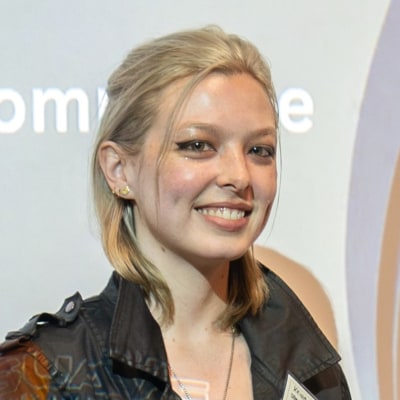
Keira is an ecologist and conservationist researching at Macquarie University. Her space journey began in a cross-disciplinary project at Macquarie Orbital and evolved into advocacy for student voices to be heard at the space industry level. It is Keira's goal to form a collaborative, trans-disciplinary pathway from education through to workforce for passionate cohorts of young professionals and space enthusiasts in Australia. Currently, she is Co-president at the Space Research Student Committee NSW, National Committee member at the Australian Space Diversity Alliance, and Director at the Australian Virtual Astronaut Challenge.

Duncan Blake researches and teaches at the intersection of law, space, and military strategy. A former permanent member of the Royal Australian Air Force, he served 22 years as a Legal Officer and now continues as a Reserve legal officer. His career spans legal support to operations in Iraq and Syria, strategic advisory roles, and work with strike and surveillance units. He served as Deputy Director of Operations and International Law in the Department of Defence and advised the Defence Space Coordinating Office, leading strategic legal initiatives in military space operations.
Duncan helped develop a joint operating concept for military use of space and continues to advise on Defence space law and operations. He has contributed extensively to Defence doctrine and policy, particularly in operations and space law, and was awarded the 2011 Lieber Society Military Prize.
He holds degrees in Law and Economics (UWA), two Master of Laws degrees (Melbourne, McGill), and is a graduate of Australian Command and Staff College. At McGill, he wrote his thesis on warfare in space law and later founded the Manual on International Law Applicable to Military Uses of Outer Space (MILAMOS) and led the Woomera Manual project.
Duncan is completing a PhD at the University of Adelaide on resolving legal conflicts in military space law. He also founded the Workshops on the Regulation of Space Activities and Technologies (WRegSAT) and is Deputy Chair in 2025.
He consults with the International Aerospace Law & Policy Group and pursues research in space governance. Duncan lives in Australia with his wife and two children, and enjoys cycling, skiing, and rowing.

Khushi has a background in physics and palaeoscience, with a passion for cross-disciplinary research in space sciences. Her current focus lies on making science accessible and building a support network for students and young professionals interested in Space. With experience in physical chemistry and astrobiology, Khushi now works as an X-ray Scientist at CSIRO, analysing mineral resources, and a Host at Sydney Observatory, championing the need for science communication. She believes that harnessing the multidisciplinary nature of Space is key to engaging youth and inspiring Australia’s future in Space.
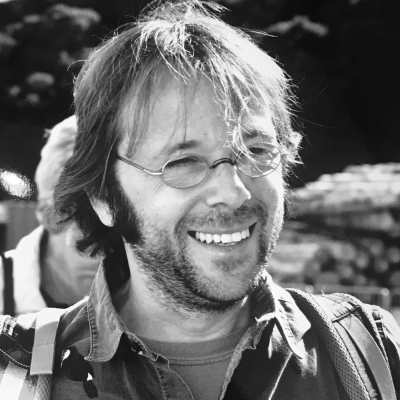
Dr Carsten Laukamp is a Principal Research Scientist at CSIRO Mineral Resources, evaluating multispectral and hyperspectral Earth observation imagery (EOI) for critical metals exploration and research. Carsten is a member of the Earth Observation Australia (EOA) Management Committee, co-leading IEEE’s Working Group on Spectroscopic Sensing of Earth Materials of the Geoscience Spaceborne Imaging Spectroscopy Technical Committee (GSIS TC) and a member of advisory boards for EU-funded projects on multi-scale Earth observation. In his various roles, Carsten advocates for EOI within the Australian and international minerals industry and explores common goals with the environmental and agricultural sectors.

Georgi Coddington is the Director of the ASTRA Program, a space education initiative established by the Australian Youth Aerospace Association (AYAA) in 2020. The program provides 36 tertiary students and young professionals a platform to discuss issues pertaining to the growth of Australia’s space sector, where participants from around Australia are supported by leading industry experts to write a co-authored white paper over the Australian summer period. Previous white paper topics have centred around critical space infrastructure, workforce diversity, regional space collaboration and earth observation. Georgi authored a paper on the program, speaking at the 2024 International Astronautical Congress in Milan - representing Australia as one of the AYAA’s 2024 Young Australian Space Leaders. As well as leading the program, she is currently working towards a Bachelor of Engineering (Mechatronics)/Mathematics and is also a TAFE student studying a Diploma of Project Management at RMIT University Melbourne.

James completed his PhD (2007) at the University of Queensland (UQ) and a post-doctoral fellowship at UQ’s CCRE-Spine. This training has enabled a successful academic career evidenced by being a CI/PI/Collaborator/Consultant on over $30M in research funding and more than 200 peer-reviewed publications. He is currently the Director of the Kolling Institute and the Academic Director of Allied Health and Public Health in the Faculty of Medicine and Health at the University of Sydney and the Northern Sydney Local Health District. The primary focus of his interdisciplinary work uses high-resolution imaging techniques to quantify altered spinal cord anatomy and whole-body skeletal muscle degeneration as potential markers of recovery following a traumatic injury. He co-founded the MuscleMap Consortium: a data-driven open-sourced methodology to iteratively enhance the efficacy of Artificial Intelligence models tailored for the analysis of MRI datasets, worldwide. With collaborative support of, James and colleagues are creating the world's leading well-being index towards driving better terrestrial & extra-terrestrial health outcomes for all.
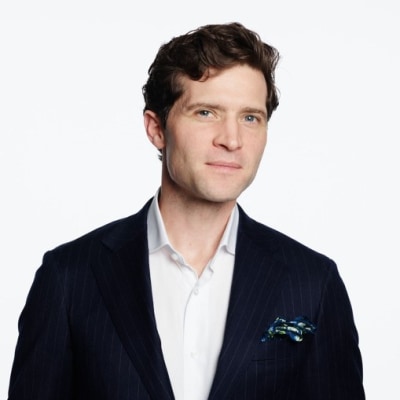
Professor Alan Duffy is the Pro-Vice Chancellor of Flagship Initiatives at Swinburne University of Technology, bringing together diverse research teams with industry and government stakeholders to undertake transformative programmes in Flagship sectors of hydrogen, renewable technologies, AI, space and aerospace, MedTech and health innovation. He was the inaugural Director of the Space Technology and Industry Institute at Swinburne, finding ways to use space and AI to help companies and communities on Earth. His research background in computational astrophysics saw Alan model universes on supercomputers to understand how galaxies like our Milky Way form within vast clouds of dark matter. He is trying to find this dark matter as a Chief Investigator in the $35M ARC CoE for Dark Matter Particle Physics and SABRE, the world’s first dark matter detector in the Southern Hemisphere, at the Stawell Underground Physics Laboratory at the bottom of an active gold mine in Victoria. Alan is also the cofounder and CEO of mDetect, a spin-off company from his dark matter research, that uses particles from space to scan through rock for mineral exploration, identification of structural weaknesses in tailings dams, and subsidence/air gaps below critical infrastructure.
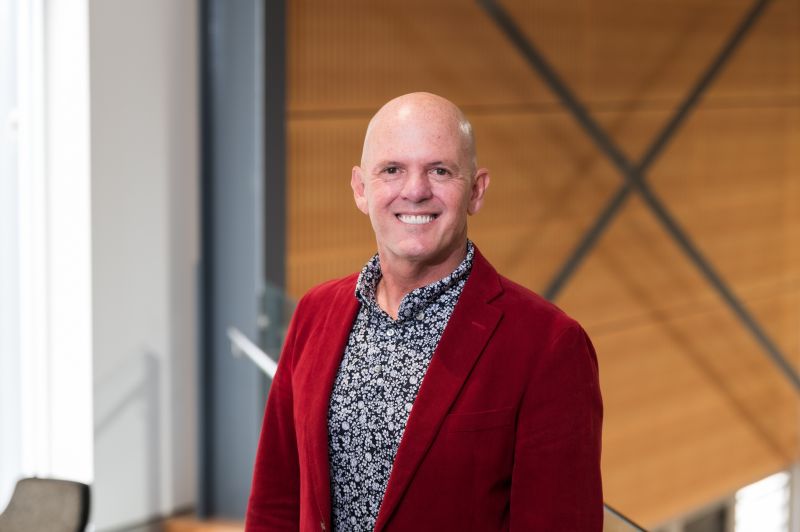
Paul founded Crazy Might Work (the first leadership academy to be launched in Antarctica) in 2015, on a mission to bring learnings from frontiers like space to the workplace. Today Crazy Might Work is the leading provider of the Four-Dimensional Leadership program used by NASA. Prior to launching Crazy Might Work, Paul worked in over 20 countries, on everything from mergers and acquisitions to global shared services. He chairs the Board of a Community Services organisation and is a sought-after keynote speaker on the subjects of innovation and leadership as well as a skilled master of ceremonies and moderator. With formal qualifications in education, business and innovation, accreditations in neuroscience and appreciative inquiry, and a pending PhD in breakthrough innovation, you can expect Paul to bring some fresh thinking and inspirational perspectives to the table.
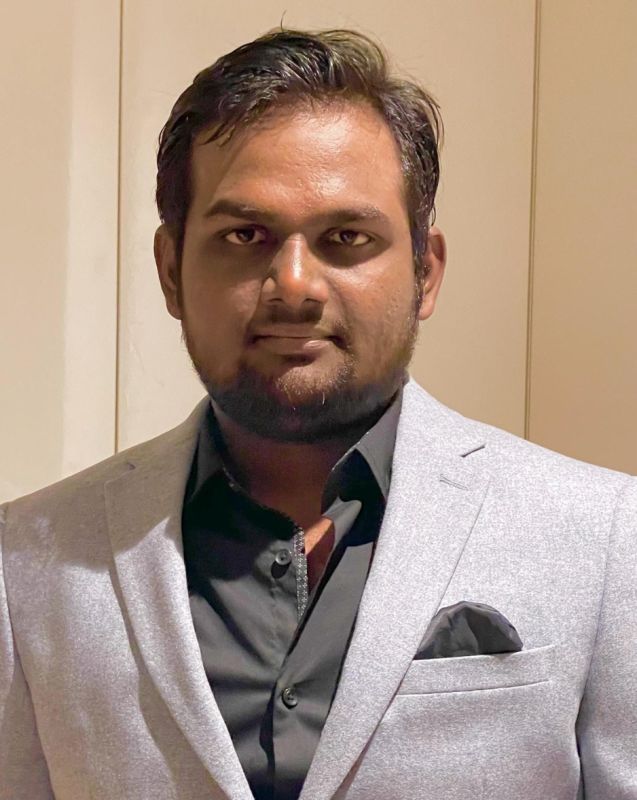
Preetham Akula, CEO and founder of Akula Tech, a deep tech start-up specializing in the space sector, draws from his aerospace engineering background to drive innovation. Fuelled by a profound passion for space tech, he established Akula Tech to pioneer advancements in the industry.
Akula Tech's unique value proposition stems from our next-generation satellites, equipped with adaptive intelligence, enabling them to learn and improve the mission operations over time. Our satellites are also manufactured using novel materials and advanced manufacturing techniques, making the production faster and cost efficient.

David is the Regional Director Australia New Zealand for Lockheed Martin Space, representing the space portfolio of capabilities and services in the region. Prior to joining Lockheed Martin, David was the Chief Executive Officer of the Space Environment Research Centre (SERC), and also held leadership roles in the Space Industry Association of Australia (SIAA) for more than a decade, culminating in his tenure as Chair of the SIAA during 2020. With over 25 years of experience in the space, communications and defence sectors David has spent a significant portion of his career specialising in satellite communications and has held senior positions with several commercial satellite communications operators, including Intelsat and PanAmSat. David’s previous roles encompassed sales management, business development, customer service engineering, space systems design and spacecraft and launch vehicle acquisition.
Earlier in his career David was an electronics engineering officer in the Royal Australian Air Force responsible for engineering management of Defence communications systems with his final posting focused on military satellite communications systems. David holds a Bachelor of Engineering degree (Communications Engineering), a Graduate Diploma in Business Management and a Graduate Diploma in Applied Finance. David is a graduate member of the Australian Institute of Company Directors.
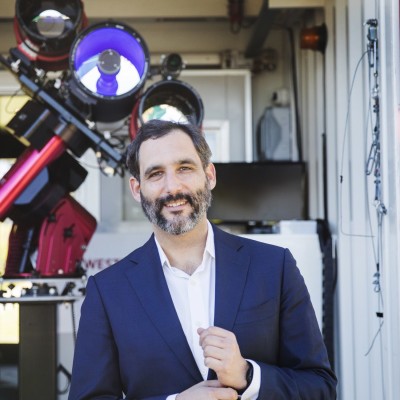
Gregory Cohen, received a B.Sc.(Eng) Electrical and Computer engineering, a MSc (Eng) and a BCom(Hons) in Finance and Portfolio Management from the University of Cape Town, Cape Town, South Africa in 2007, 2008, 2010, respectively, and a joint PhD in signal processing and neuromorphic engineering from Western Sydney University, Sydney Australia and the University of Pierre and Marie Curie in Paris, France.
Prior to returning to research from industry, he worked in several start-ups and established engineering and consulting firms including working as a consulting engineer in the field of large-scale HVAC from 2007 to 2009, as an electronic design engineer from 2009 to 2011, and as an expert consultant for Kaiser Economic Development Practice in 2012. He is currently the Director of the International Centre for Neuromorphic Systems (ICNS) at Western Sydney University and program lead for neuromorphic algorithms and space applications.

As CEO of Av-Comm Space and Defence, Michael has worked extensively across the implementation of complex ground segment projects, as well as the research and development Australia’s first sovereign designed and manufactured multi-orbit satellite ground terminal – the Cassowary.
Michael’s focus in recent years has been to reinforce Av-Comm’s position within the international market by identifying industries that strategically align with Av-Comm’s technical expertise and infrastructure, with a strong vision on collaborating with domestic and international clients and partners to deliver effective solutions in an ever-evolving industry.
Av-Comm is an ISO certified business, working with clients throughout the defence industry to provide sovereign satcom solutions to further Australia’s national security. Michael is passionate about the importance of multi-orbit satellite architecture in Australia’s military communications network, and is an advocate for the diverse uses of military satcomms.

Kate is a corporate lawyer specialising in managing regulatory risk and complex contracting. Kate specialises in supporting participants in highly regulated industries, including telecommunications, infrastructure and financial services. Kate is experienced in working with incumbent operators and new market entrants, and supports Government agencies as well as corporates.
Kate loves advising on the application of regulatory schemes and on the development of new laws and novel transactions. Kate has a particular focus on the Radiocommunications Act and the Telecommunications Act, and related regulatory schemes, which is what originally drew her into the space sector.

Professor Andrew Dempster is Director of the Australian Centre for Space Engineering Research (ACSER) in the School of Electrical Engineering and Telecommunications at the University of New South Wales (UNSW). He has a BE and MEngSc from UNSW and a PhD from the University of Cambridge in efficient circuits for signal processing arithmetic. He was system engineer and project manager for the first GPS receiver developed in Australia in the late 80s and has been involved in satellite navigation ever since. His current research interests are in satellite navigation receiver design and signal processing, areas where he has six patents, and new location technologies, and space systems, especially those related to extracting water. He is leading the development of space engineering research at ACSER.

As an Application Engineer at LEAP Australia, Bennett’s provides expert advice and support on the use of Ansys engineering software for Digital Mission Engineering, Systems Modelling and Computational Fluid Dynamics applications. Having completed a B.Eng (Hon) in Mechatronic Engineering at UNSW, Bennett’s undergraduate thesis applied multi-physics simulation to the design and optimisation of a Polymer Electrolyser-based Green Steel plant tailored to Australia’s unique conditions. Since moving to industry, Bennett’s main focus has been on simulation of complex multi-domain problems encompassing sub-components, individual machines and interconnected networks across a range of industries including aerospace, maritime, construction, mining and agriculture.
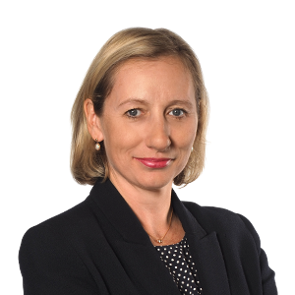
Annabel is an international corporate and technology lawyer with over 20 years’ experience in Australia, the UK and Asia. At the heart of what she does is solve problems and execute complex transactions. She specialises in commercial transactions and projects involving technology, data and intellectual property, including in the space sector.
She is passionate about innovation in business and government and the role reliable and clear legal advice plays in achieving project outcomes. She is actively involved in the Canberra Innovation Network and the KWM Digital Economy Team. Her key areas of focus include business domestic capability, opportunities for Australia in our region, and helping clients adopt technology solutions for higher value scale.
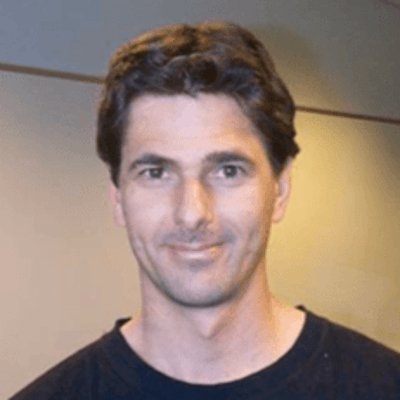
Brett has a comprehensive industry and research background focused on technologies for search, delineation, and development for natural resources. His research engaged nose to tail processes from research to patent to commercial agreement. Brett has been Program leader in Australia’s approximately 8.5-year Deep Exploration Technologies Cooperative Research Centre (DET CRC) which developed new subsurface sensing technologies. He is currently project 4 lead for the 9-year MinEx CRC Project 4 who have develop new electromagnetic sensing technologies. Brett also works with government agencies on a range of challenges including development managed aquifer recharge systems and technologies for efficiently locating fractured rock aquifers. Prof. Harris also supervises PhD students and teaches graduate/undergraduate subjects spanning advanced electromagnetism, environmental/groundwater geophysics, and minerals/planetary geophysics. In summary Brett has the demonstrated ability to consistently generate quality innovative research solutions from earth science projects that may span geophysics, numerical simulation, hydrogeology, geothermal technologies, mineral exploration, aquifer management, geological sequestration of CO2, well logging and or well field design.

Craig Ingram is a physicist and project leader based in Australia, specialising in the development of advanced optical instrumentation and Earth observation technologies. He played a pivotal role in the CyanoSense project, leading the design and deployment of Australia's first domestically developed hyperspectral imaging payload in space, aimed at monitoring inland water quality and detecting harmful algal blooms. Craig's current work at CSIRO includes innovative telescope design for Earth observation satellites, integrating cutting-edge optical systems and rapid prototyping methodologies to enhance environmental monitoring from satellites, drones, and airborne platforms. He is dedicated to advancing satellite remote sensing capabilities and promoting Australian leadership in space-based Earth observation.
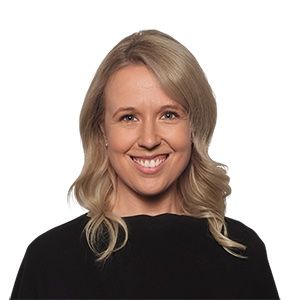
Urszula McCormack is a market-leading regulatory and digital economy lawyer, with a focus on emerging technologies. She runs a cross-border team based in both Australia and Hong Kong.
Urszula advises global banks, investors, payment institutions, large technology companies, transnational bodies and developers on new products and services, digital infrastructure, cross-border transactions, compliance and licensing. Urszula is especially well known for large-scale platforms and complex multi-stakeholder structures. She also advises governments, multilaterals and regulators on digital economy development, legal frameworks and major projects.
Urszula is a member of multiple advisory bodies and has been appointed to the Panel of Recognised International Market Experts (P.R.I.M.E.). She is regularly invited to brief governments, regulators and transnational policymakers. Urszula is admitted to practice law in Hong Kong, Australia and England & Wales.

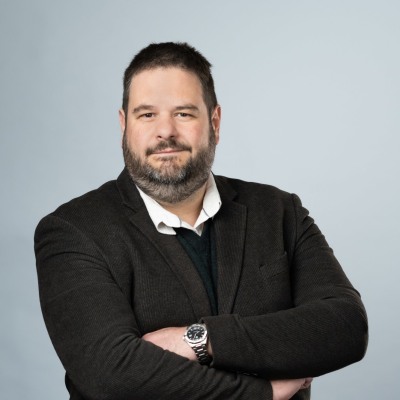
Dr Rodrigo Praino is Professor of Politics and Public Policy and Director of the Jeff Bleich Centre for Democracy and Disruptive Technologies at Flinders University.
He holds a PhD in Political Science and has received several prestigious fellowships, scholarships and awards, including a Fulbright Scholarship. In 2018 he became the first political scientist to win a Tall Poppy Science Award for excellence is scientific research and communication.
Professor Praino is an expert in decision-making and political behaviour, conducting research on elections, voting, and how voters make decisions in a context of low-information. His publications in this area cover a wide range of issues, including the effect of political scandals and corruption, the political behaviour of young voters, the political representation of women, and the role of candidate physical appearance.
Professor Praino is also engaged in research on space politics and space policy. He is particularly interested in understanding and analysing the importance of space assets for defence, economic development, international relations, and decision-making. He is a co-author of Power, State and Space: Conceptualizing, Measuring and Comparing Space Actors (Springer, 2023).
Professor Praino's research has been published by top peer-reviewed academic journals in the Social Sciences, and has attracted funding from various sources, including the Australian Research Council, SmartSat CRC, Defence, the Australian Space Agency, and UNICEF.
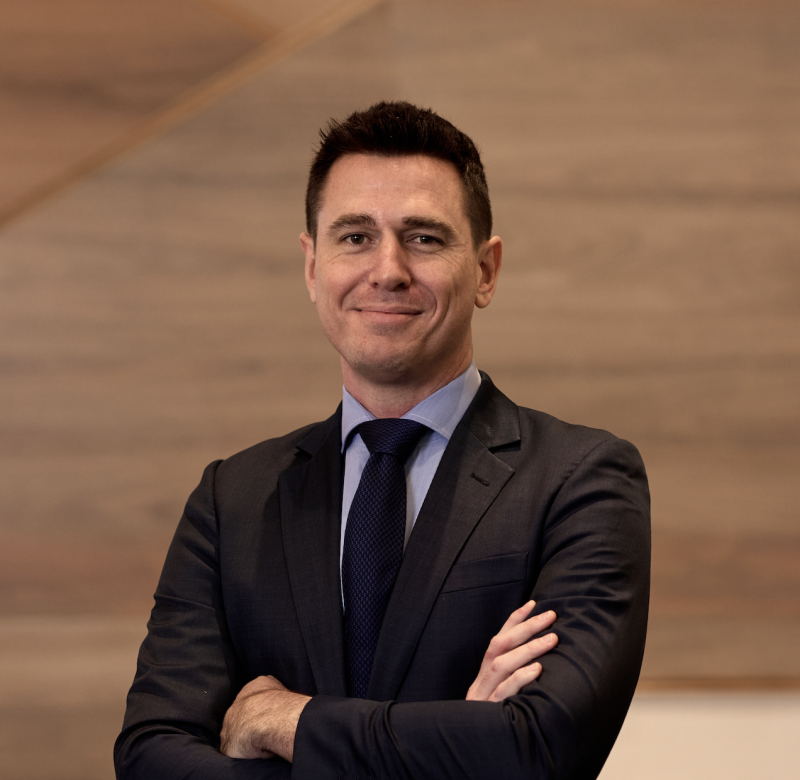
Chris Shaw is the CEO and co-founder of Advanced Navigation, a robotics and navigation AI-based technology company.
Chris earned his degrees in business and electronic engineering from the University of Western Australia graduating with First Class Honours. During this time, he was a research and development engineer at Entecho, a company focused on developing air taxis and aerial vehicles. Following this, he joined Cyber Technology, a company specialising in autonomous vehicles.
Upon discovering a gap in the market for small robust high performance autonomous navigation solutions, Chris co-founded Advanced Navigation with business partner Xavier Orr. Since 2012, the company has experienced great success and has progressed into several deep technology fields, including underwater sonar, GNSS antennas and receivers, radio frequency systems, inertial sensors, robotics, and quantum-enhanced inertial navigation.
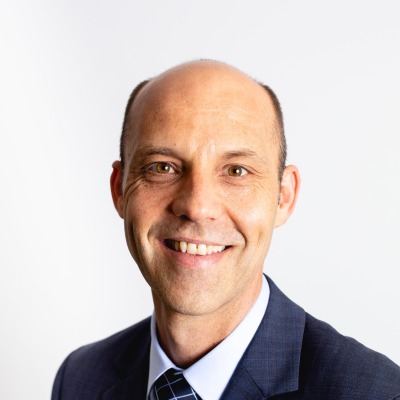
After earning his Bachelor of Engineering from the University of Adelaide, Dr. Matthew delved into cutting-edge research during his PhD at the Space Systems Institute in Stuttgart, Germany. Starting off his career as a systems engineer Matthew engaged in diverse projects spanning defence and non-defence domains.
In 2012, he established Inovor Technologies, driven by a mission to collaborate closely with the defense sector and pioneer advancements in satellite technologies. Inovor is now a leading space and defence technology company based in Adelaide, that specialises in end-to-end satellite mission solutions building satellites of various sizes for a wide range of missions including space domain awareness, Earth imaging, communications, climate science, AgTech, scientific experimentation, and more.
Matthew's excellence in the field of space technology has been acknowledged with prestigious accolades throughout the past years such as Innovator of the Year, Space Business of the Year, and recognition from institutions like the American Chamber of Commerce in Australia. Matt aims to create cutting-edge solutions that address pressing challenges and enhance the quality of life for individuals and communities alike. With Inovor's proactive approach to technological advancement Matthew’s vision is to continuously push the boundaries of space and defence capabilities in Australia.
If you're interested in speaking at the event, please contact Jack via email.
